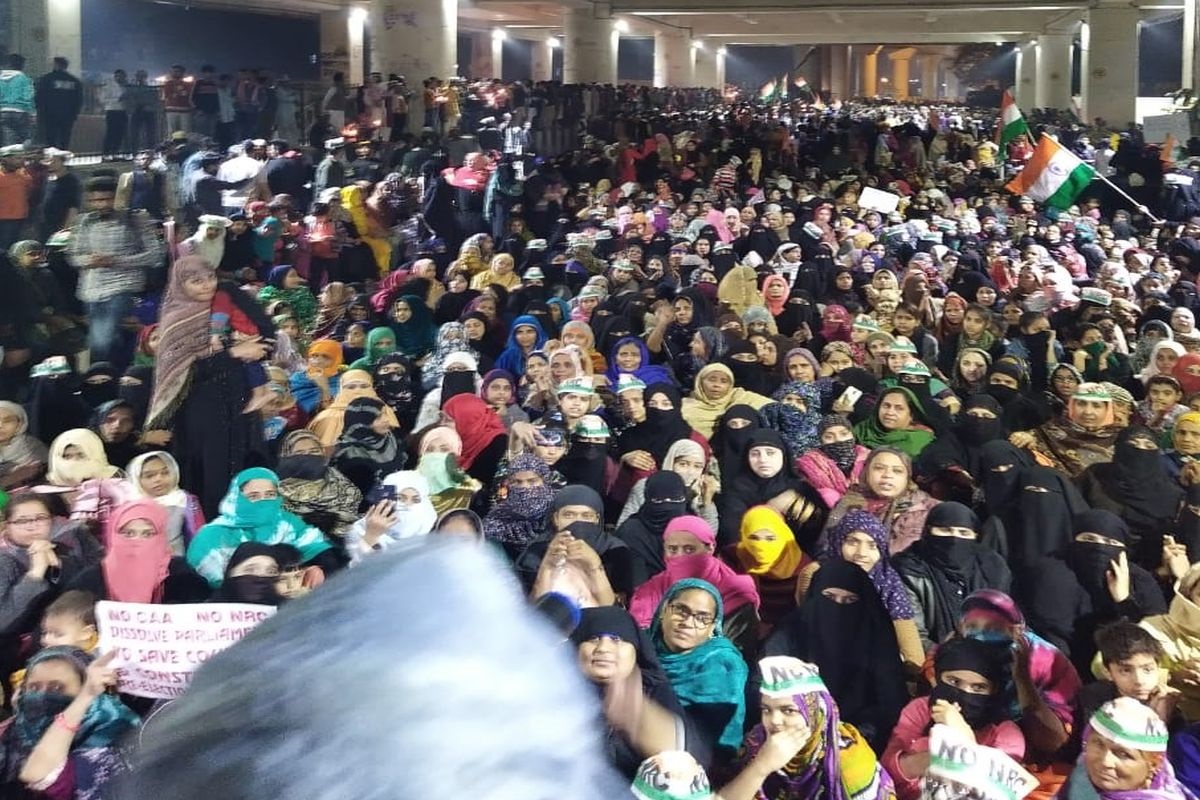Even as anti-Citizenship Amendment Act (CAA) protests which took place around three months ago have been kept at the back-burner amid the Coronavirus lockdown, two Jawaharlal Nehru University students have been arrested on Saturday for participating in northeast Delhi’s Jaffrabad protest, held in February against CAA and National Register of Citizens (NRC).
Devangana Kalita and Natasha Narwal are the founding members of Pinjra Tod group (Break the cage), a movement for women’s rights especially the college students, which began against the disciplinary curfew timings for the hostelers.
Advertisement
They were booked under IPC (Indian Penal Code) sections 186 (obstructing public servant in discharge of public functions) and 353 (assault or criminal force to deter public servant from discharge of his duty).
In February, an overnight protest by around 500 people, mostly women, against the CAA and the NRC in Jaffrabad Metro station led to BJP leader Kapil Mishra’s incriminating speech asking the protesters to leave, after which the Delhi riots broke out leave leaving around 60 people dead.
This was the second women led anti-CAA protest in Delhi after Shaheen Bagh. Shaheen Bagh had been the epicentre of the anti-CAA agitation as the protesters have been sitting at the venue since December 15 demanding the withdrawal of the Act which they alleged to be anti-Muslim.
Earlier, Safoora Zargar had been arrested on April 13, after police claimed she was among those who organised an anti-CAA protest and road blockade under the Jafrabad Metro station in Delhi on February 22-23. At the time of her arrest, Zargar was 13 weeks pregnant.
Delhi Police arrested 27-year-old Jamia Scholar Safoora Zargar last month, who is now in the second trimester of her pregnancy. She was sent to Tihar Jail after being charged under the UAPA (Unlawful Activities Prevention Act) for her alleged role in the Northeast Delhi riots.
Zargar’s arrest has also been condemned by international human rights organisation Amnesty. On May 1, Amnesty India released a statement saying, “A particularly distressing arrest was that of 27-year-old Safoora Zargar, a research scholar from Jamia Millia Islamia (JMI) University. She was arrested on 10 April 2020 by the Delhi police for her alleged involvement in the February Delhi riots. But immediately after getting bail, the Delhi police arrested her again under UAPA and sent to Tihar jail in New Delhi, one of the most overcrowded prisons in the country. At the time of her arrest, Safoora was three months pregnant. She has been repeatedly denied access to her lawyer and her husband due to the nation-wide lockdown imposed to fight the COVID-19 pandemic.”
The Delhi Police’s crime branch had arrested another Jamia Millia Islamia student, Asif Iqbal Tanha on May 18, in connection with the violence near university campus during a protest against the Citizenship Amendment Act in December last year.
The police had said Asif Iqbal Tanha, a resident of Abul Fazal Enclave in Shaheen Bagh, is a member of the Students Islamic Organization and was part of the Jamia Coordination Committee which spearheaded protests against the new citizenship law.
“He has been arrested in connection with a case which was registered at Jamia police station on December 16, 2019 in connection with violence in the Jamia area in which he was named as an accused,” a senior police officer had said.
“Asif is a key member of the Jamia Coordination Committee and played an active role in organising protest in Jamia in December 2019. He is a close associate of Umar Khalid, Sharjeel Imam, Meeran Haider and Safoora Zargar who had been key organisers of anti-CAA protests,” the police officer said. The Jamia student was produced before a metropolitan magistrate who remanded him to judicial custody till May 31, the police officer said.
The communal violence in northeast Delhi, which was sparked by protests over the Citizenship Amendment Act (CAA) had left at least 60 people dead and over 200 injured.
Protests had erupted across the nation with violence and arson emerging from different parts of Delhi, West Bengal, Uttar Pradesh and the northeastern states of Assam, Tripura and Manipur.
Those opposing the amended law say it discriminates on the basis of religion and violates the Constitution. They also allege that the CAA, along with the proposed pan-India National Register of Citizens (NRC), is intended to target India’s Muslim community.
However, the BJP-led Central government had dismissed the allegations, maintaining that the law is intended to give citizenship to the persecuted people from the three neighbouring countries and not take away citizenship from anyone.











